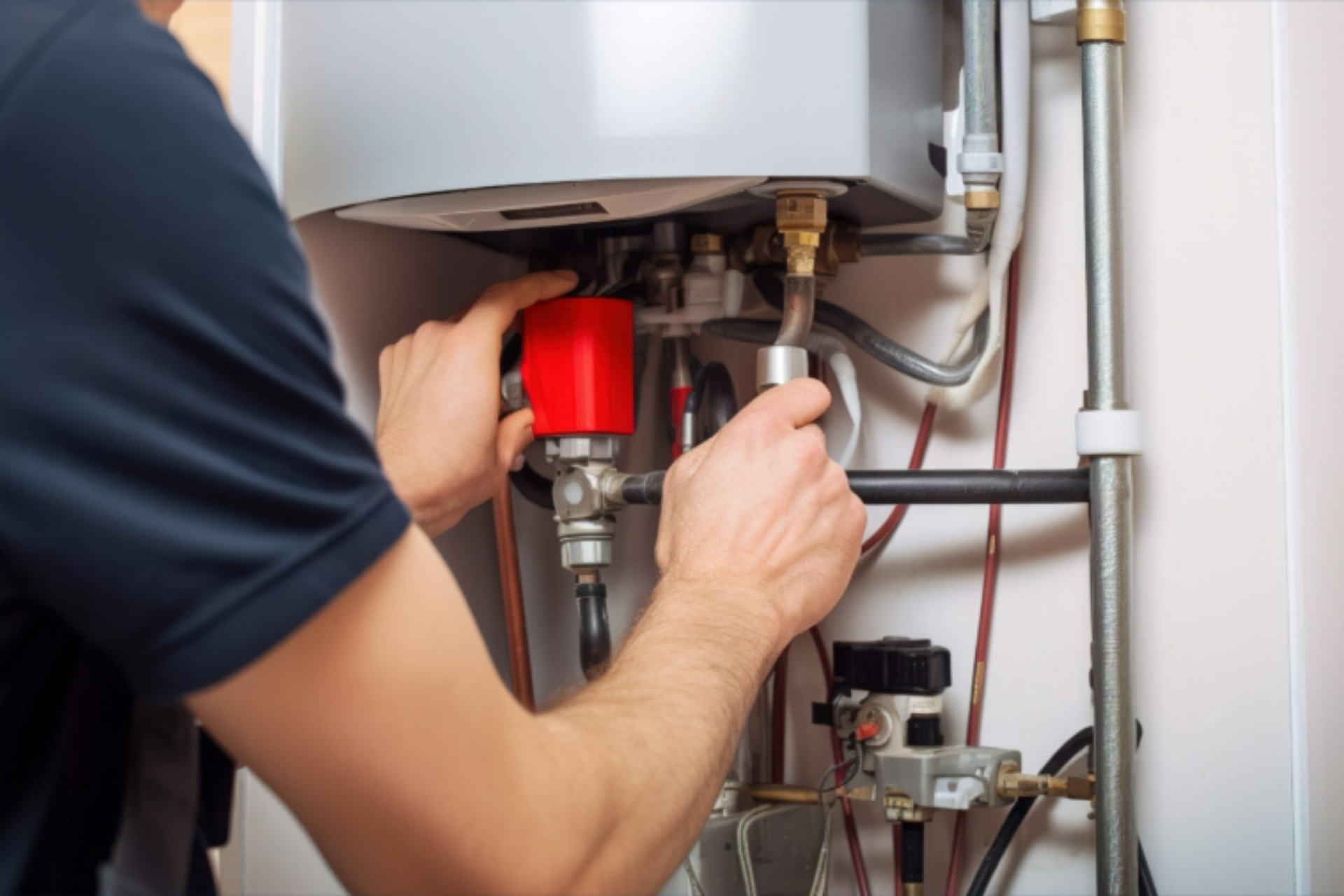Want to save with Paschal? Don’t miss our current offers and specials

Want to save with Paschal? Don’t miss our current offers and specials
Return to Paschal Resource & Education Hub

Imagine your morning routine: the kids are taking showers, you’re filling the bathtub, and someone is running the dishwasher — all at the same time. With a traditional water heater, someone’s shower might suddenly turn cold. A tankless water heater solves that problem by heating water instantly as it flows, giving your household hot water on demand — luxury you can enjoy every day.
Tankless water heaters don’t store hot water. Instead, they heat it as needed:
Most units provide 2–5 gallons per minute (GPM). Gas-fired units are higher capacity, suitable for large households, while electric units work best for smaller homes or point-of-use applications.
Large households may need multiple units or supplemental point-of-use heaters for high-demand areas.
| Household Scenario | Traditional 50-Gallon Tank | Tankless Water Heater |
| 2–3 showers back-to-back | May run out mid-shower | Continuous hot water |
| Shower + laundry + dishwasher | The tank can run out | All can run simultaneously |
| Large soaking tub | May cool before full | Steady hot water until full |
Tip: Calculate total GPM needed for simultaneous usage. Consider point-of-use units near high-demand fixtures if needed.
| Feature | Tankless | Heat Pump |
| Hot water supply | Instant, on-demand | Stored in a tank, limited by capacity |
| Energy efficiency | 8–34% better than tank | 2–3× more efficient than standard electric |
| Fuel type | Gas or electric | Electric only |
| Space required | Compact, wall-mounted | Needs airflow around the tank |
| Ideal use | Whole-house luxury, continuous hot water | Energy savings, predictable usage, moderate household size |
Key difference: Tankless provides continuous hot water instantly; heat pumps store water and heat it efficiently from the surrounding air.
Tip: Look for models with Energy Star certification or rebates from local utilities.
Schedule a consultation: Paschal Air, Plumbing & Electric
Even the best tankless water heaters can run into issues. Our video “Tankless Water Heater Problems? Here is what to check!” walks you through the most common problems and how to troubleshoot them — from flow rate hiccups to maintenance tips.
Disclaimer: Prices vary by location, home layout, and the specific unit. Below is a national average for guidance:
Linda Brown – May 8, 2023
Plumber Tech Robert checked for repairs, answered all questions, and explained options for replacing the hot water tank. Excellent preventative maintenance advice.
Matt Barden – Mar 7, 2023
Zack and Riley were complete professionals in replacing our tankless system, including plumbing and gas adjustments. Very impressed.
Michael Smith – Aug 7, 2020
Tankless installation was spot-on. Technicians were professional, polite, and explained the operation thoroughly. Very satisfied.
Q: How long do tankless water heaters last?
A: Typically 20+ years; replaceable parts may extend lifespan.
Q: Can a single unit meet peak household demand?
A: Depends on flow rate; large households may need multiple units or point-of-use supplements.
Q: Are tankless water heaters energy efficient?
A: Yes — 24–34% savings for small to medium households (Energy.gov).
Q: Do I need a permit?
A: Local codes vary; professional installers usually handle permits.
Q: Are rebates available?
A: Some states or utilities offer incentives for high-efficiency units.
Q: Can I install it myself?
A: DIY is possible but professional installation is strongly recommended for safety and efficiency.